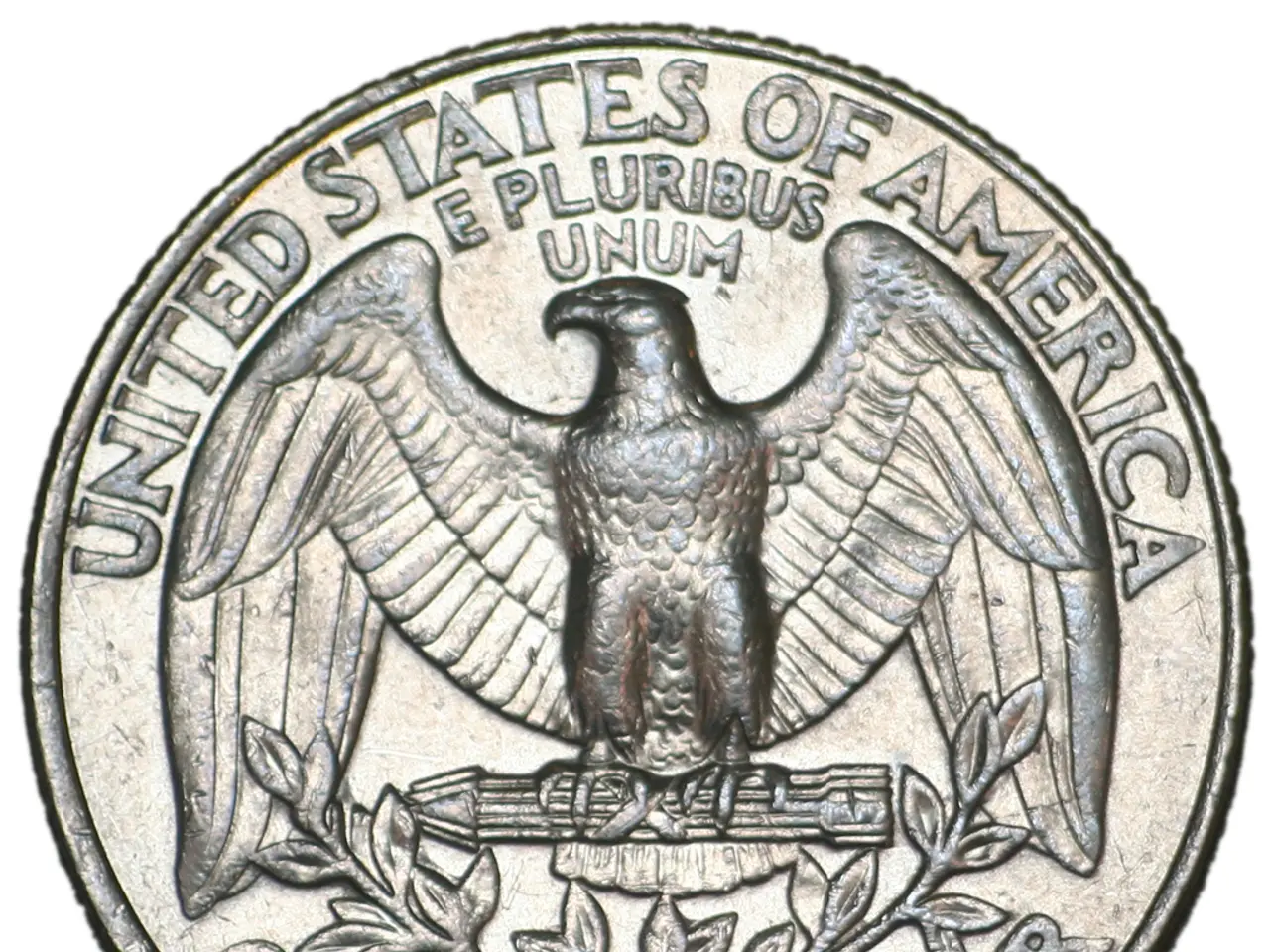Congressional Battle Erupts Over Federal Decree Regarding Cryptocurrency and Home Loans
In the realm of financial innovation, Senator Cynthia Lummis has introduced a bill called the 21st Century Mortgage Act, which seeks to revolutionise mortgage lending standards by allowing cryptocurrency assets to be used as collateral for single-family home mortgage loans. This bill, if passed, would require government-backed lenders like Fannie Mae and Freddie Mac to recognise cryptocurrencies as valid collateral during mortgage application reviews.
The bill's aim is to modernise mortgage lending standards and improve access to homeownership for younger, digitally savvy Americans. However, the question of how much of a "haircut" should be applied to cryptocurrencies in wealth assessments remains unresolved. The Lummis bill allows for haircuts on cryptocurrencies without specifying amounts, which could potentially lead to political manipulation.
A scientific approach to haircuts is necessary when considering the use of cryptocurrencies in wealth assessments. This approach should assess risks based on volatility and incorporate estimates of the current crypto cycle position. The volatility of cryptocurrencies remains a concern in the consideration of their use as collateral for mortgage loans. Bitcoin typically drops 75 to 80 percent from peak to trough, while altcoins often fall more than 90 percent. Current prices cannot always be assumed to represent all-time highs for cryptocurrencies.
The lack of a consistent approach to haircuts could potentially lead to instability in the housing market and financial system. This is a significant concern, as the FHFA Director, William J. Pulte, ordered Fannie Mae and Freddie Mac to consider cryptocurrency assets as collateral for single home mortgage loans in June. However, Democrats have challenged this order, stating that expanding underwriting criteria to include unconverted cryptocurrency assets could pose risks to the stability of the housing market and the financial system.
The 21st Century Mortgage Act also allows for the inclusion of digital assets in a borrower's reserves without conversion to U.S. dollars. This is a key point, as it removes the need for immediate conversion, which could potentially mitigate some of the volatility concerns.
The bill, however, has not yet been passed or implemented, and is among several crypto-related legislative proposals pending Senate consideration after the August recess. The bill's introduction has sparked a broader discourse, with concerns around market volatility and potential conflicts of interest being raised.
In conclusion, the 21st Century Mortgage Act is a proposed bill that aims to legitimise crypto as mortgage collateral, with the goal of increasing homeownership accessibility, mainly for younger adults. The bill is at the proposal stage in the Senate, and concerns around market volatility and potential conflicts of interest remain part of the broader discourse but have not been specifically detailed in the publicly available proposals.
- The 21st Century Mortgage Act, if passed, could lead to a shift in the enterprise finance sector, as it includes a provision that allows cryptocurrencies to be used as collateral for mortgage loans, potentially improving access to homeownership for a digitally savvy demographic.
- The bill's approach to haircuts for cryptocurrencies remains ambiguous, leading to speculation about potential political manipulation and concerns over market volatility.
- To mitigate these concerns, a scientific approach to haircuts should be adopted, considering factors such as volatility and current crypto cycle position, to assess risks accurately when considering cryptocurrencies as collateral.
- The broader discourse surrounding the 21st Century Mortgage Act includes debates about market volatility, potential conflicts of interest, and the impact on the stability of the housing market and the general-news finance system.




